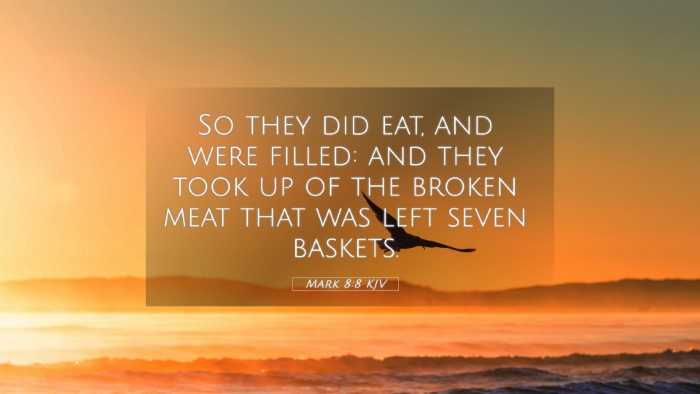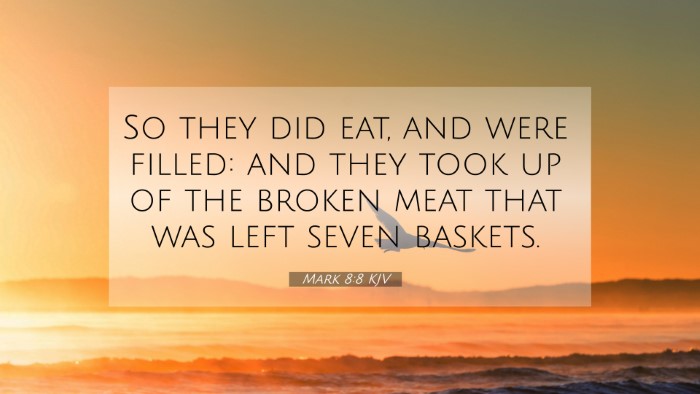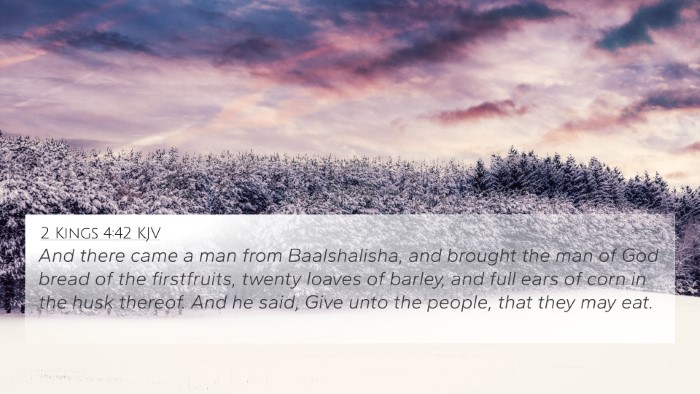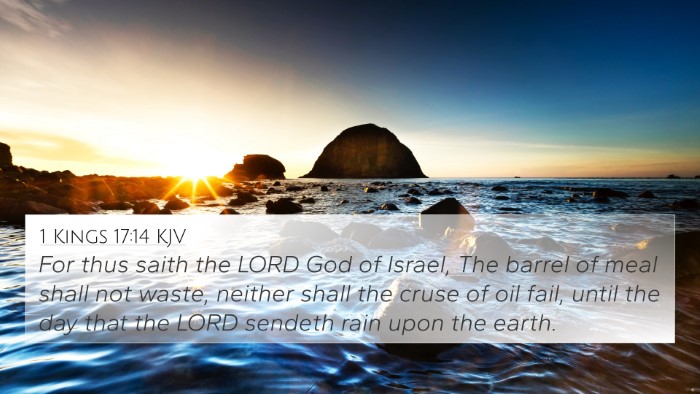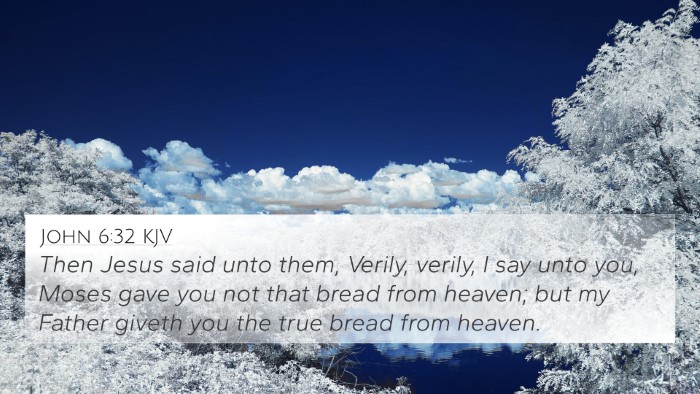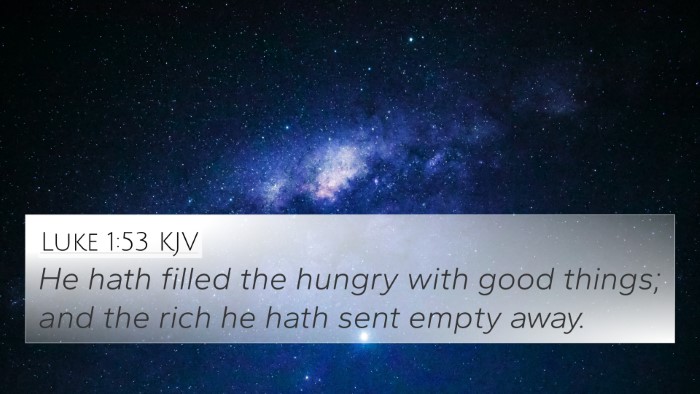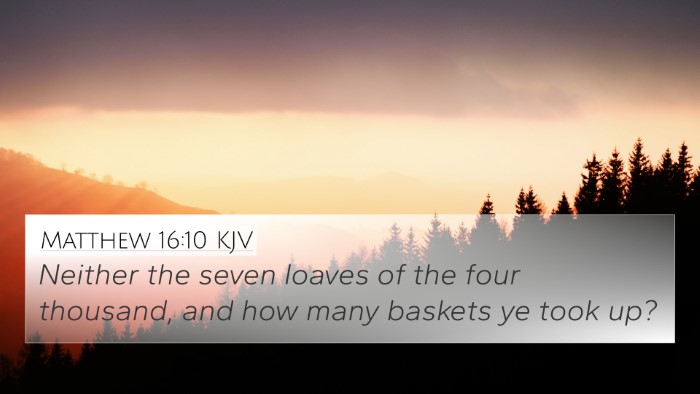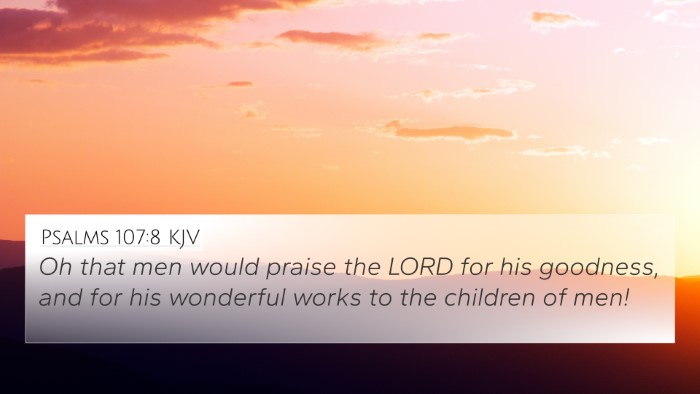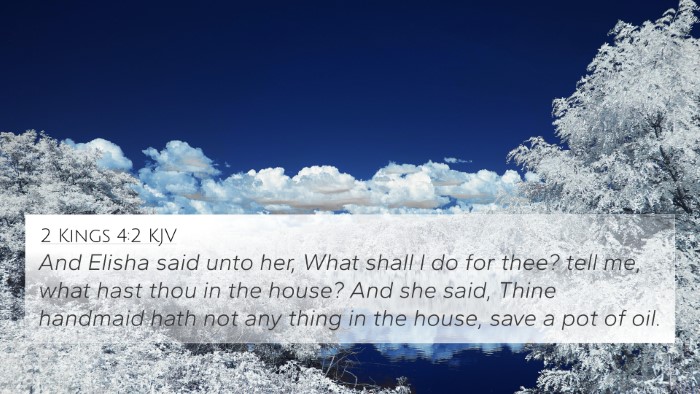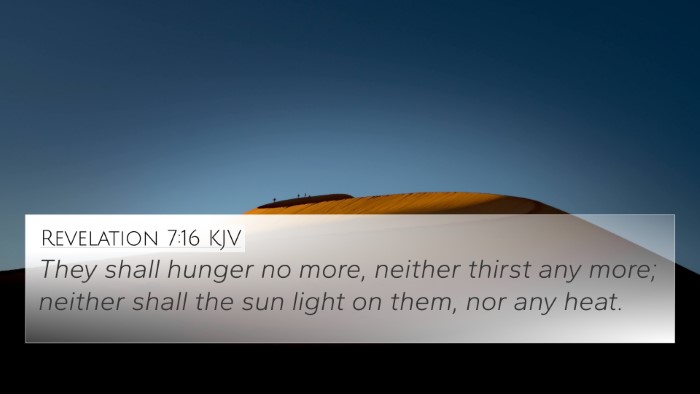Meaning and Explanation of Mark 8:8
Mark 8:8 states:
“So they ate and were filled, and they took up seven large baskets of leftover fragments.”
This verse follows the account of Jesus performing the miracle of feeding the four thousand. The significance of this scripture is profound, reflecting not only Jesus’ compassion and power but also the fullness and abundance of His provision.
Key Themes
- Divine Provision: The miraculous feeding of the multitude illustrates Jesus' ability to provide for physical needs.
- Abundance: The seven baskets of leftovers symbolize the sufficiency of Christ’s provisions, indicating that in His kingdom, there is always enough.
- Compassion: This act demonstrates Jesus' deep compassion for the people, showing His concern for their well-being.
- Symbolism of Bread: Bread is often viewed as a symbol of life, and in this context, it underscores Jesus as the sustainer of life.
Commentary Insights
Matthew Henry Commentary
Matthew Henry highlights that this miracle serves as a reminder of God’s providence. He stresses that Jesus does not only meet the spiritual needs of the people but also their physical hunger. The act of taking up leftovers emphasizes God's abundance, showing that there is more than enough when we trust in Him.
Albert Barnes Commentary
Albert Barnes points out the significance of the number seven in Jewish tradition, often representing completeness and perfection. It indicates that in Jesus, we find complete satisfaction and plenty. He also notes that the act of collecting leftovers signifies thoughtful consideration of resources, teaching a lesson about stewardship.
Adam Clarke Commentary
Adam Clarke provides insights into the cultural and miraculous aspects of the context. He underscores that this miracle, coupled with the Jews’ expectation of a Messiah who would provide physical deliverance, fulfills that expectation while also pointing towards spiritual nourishment through Christ.
Bible Cross-References
Mark 8:8 connects with various scriptures that illustrate similar themes of provision and abundance:
- John 6:11: Jesus gives thanks and distributes the loaves and fish to the people.
- Matthew 14:20: The feeding of the five thousand, reflecting a similar miracle.
- Exodus 16:4: God provides manna in the desert, showing His provision for Israel.
- Psalm 23:1: “The Lord is my shepherd; I shall not want,” emphasizing divine care and provision.
- Philippians 4:19: “And my God will meet all your needs according to the riches of his glory in Christ Jesus.”
- 2 Corinthians 9:8: God is able to bless abundantly, so that in all things at all times you will have all that you need.
- Isaiah 55:1: Inviting those who are thirsty to come for water without cost, symbolizing spiritual nourishment.
Conclusion
Mark 8:8 illustrates the profound themes of God's provision, abundance, and Jesus' compassion. By understanding this verse and its connections with other scriptures, we can appreciate the depth of God's care for both our physical and spiritual needs. This understanding encourages believers to trust in God's sufficiency, recognize the abundance of His grace, and act with compassion towards others as Jesus did.
Using Bible Cross-References
For anyone looking to deepen their understanding of scripture, utilizing tools for Bible cross-referencing can enrich personal study. Here are some tips on how to effectively use these resources:
- Employ Bible Concordances: These tools help identify verses that relate to specific themes or topics, allowing for a organized method to cross-reference ideas.
- Study Bible Cross-Reference Guides: These guides often provide insights on themes and connections between Bible texts, supporting deeper comparative analysis.
- Interactive Bible Study Methods: Engage in group discussions focused on cross-referencing scriptures to explore themes and gain different perspectives.
- Identify Themes: Look for thematic connections between passages, such as the notion of divine providence in both Old and New Testament contexts.
In conclusion, the miracle of the feeding of the four thousand, as depicted in Mark 8:8, serves not only as a historical event but also as a timeless message about God’s abundance and Jesus’ compassion. By exploring inter-Biblical dialogues and references, we gain a richer understanding of the text and its application in our lives today.

